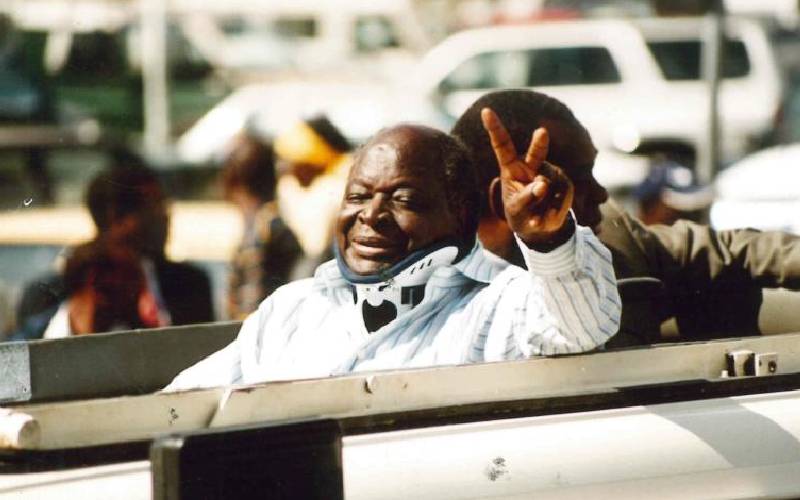×
The Standard e-Paper
Fearless, Trusted News

Mwai Kibaki, then NARC presidential candidate, at the JKIA when he arrived from London in 2002. [File, Standard]
Mwai Kibaki will be judged a mixed bag, a paradox and easily Kenya’s ultimate political enigma in his time.